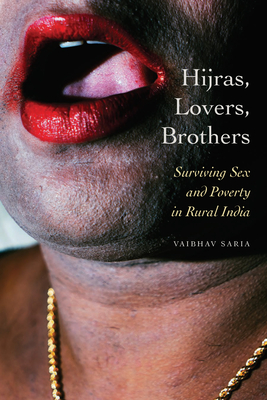Hijras, Lovers, Brothers: Surviving Sex and Poverty in Rural India

Hijras, Lovers, Brothers: Surviving Sex and Poverty in Rural India
Winner, 2023 Bernard S. Cohn Prize, Association for Asian Studies
Winner, 2021 Joseph W. Elder Prize in the Indian Social Sciences
Winner, 2021 Ruth Benedict Prize, Association for Queer Anthropology
Hijras, one of India's third gendered or trans populations, have been an enduring presence in the South Asian imagination--in myth, in ritual, and in everyday life, often associated in stigmatized forms with begging and sex work. In more recent years hijras have seen a degree of political emergence as a moral presence in Indian electoral politics, and with heightened vulnerability within global health terms as a high-risk population caught within the AIDS epidemic.
PRP: 323.95 Lei
Acesta este Pretul Recomandat de Producator. Pretul de vanzare al produsului este afisat mai jos.
291.56Lei
291.56Lei
323.95 LeiLivrare in 2-4 saptamani
Descrierea produsului
Winner, 2023 Bernard S. Cohn Prize, Association for Asian Studies
Winner, 2021 Joseph W. Elder Prize in the Indian Social Sciences
Winner, 2021 Ruth Benedict Prize, Association for Queer Anthropology
Hijras, one of India's third gendered or trans populations, have been an enduring presence in the South Asian imagination--in myth, in ritual, and in everyday life, often associated in stigmatized forms with begging and sex work. In more recent years hijras have seen a degree of political emergence as a moral presence in Indian electoral politics, and with heightened vulnerability within global health terms as a high-risk population caught within the AIDS epidemic.
Detaliile produsului








